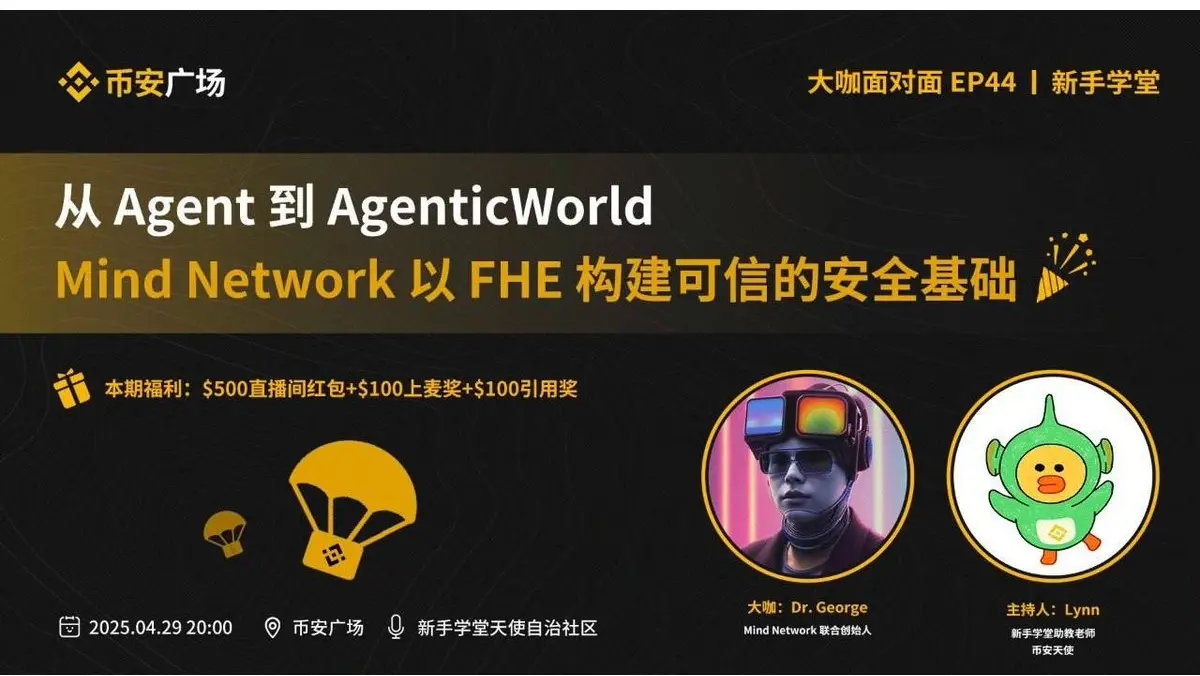Vitalik: Privacy is the guarantee of freedom, order, and progress
If you've recently scrolled through Twitter, you should have seen Vitalik Buterin sounding the alarm again: "Privacy can no longer be ignored."
This time he is not talking about abstract "human rights" or another technical breakthrough in ZK, but pointing out a visible reality:
We are entering an era of information anxiety. AI is getting smarter, data is becoming more centralized, and we are no longer simply "running naked," but are being scanned, modeled, evaluated, and ultimately sold precisely.
You might not even know which time you clicked "accept all cookies," leading to your data being sold to advertisers, risk control systems, or the next decision-making agent.
Vitalik wrote:
"Whoever holds the information holds the power."
"AI can read our data, and in the future, it may even read our thoughts."
Do you think this is the plot of a science fiction novel? No, this is the reality that YC and OpenAI have pitched countless times.
The key technology that Vitalik pointed out is the one that has quietly settled over the past decade and is now gradually stepping into the spotlight:
Fully Homomorphic Encryption (FHE).
What is this magical technology called FHE?
In a nutshell:
It allows AI to perform "understandable" tasks on "invisible" data.
For example, if you feed an encrypted X-ray image to AI, it cannot see the content or know who you are, but it can tell you: "You may need further examination."
It does not peek, upload, or store. The entire computation process is encrypted, and only the user can decrypt the result.
This is a paradoxical beauty of technology: opaque data leads to transparent conclusions.
And this mechanism is the key to our next generation of "Encrypted Agents."
On this path, agents can be "useful" to you while being "completely unaware" of you—this may be the true meaning of "data cooperation rather than data selling."
Vitalik is right, but who is doing it?
One of the answers: FHE projects like Mind Network and Privasea.
Among them, the leading FHE project Mind Network has recently gained significant traction: after the TGE, its market performance has been noteworthy, especially the discussions and debates following the roadmap release, which are fundamentally built on the technical and product accumulation of the past two years, benefiting from precise narrative and rhythm control.
More importantly, it consistently focuses on expanding based on FHE technology, providing three core directions:
Data sovereignty + encrypted computation + AI native chain.
Mind Network CEO Christian Pusateri recently emphasized on Twitter:
"In the AI era, computation must be encrypted, agents must be autonomous, and data must be sovereign."
Their goal is not to create a smarter Skynet but to build a new digital order:
You have data sovereignty, you choose interaction boundaries, and you can safely entrust AI without sacrificing convenience.
This is precisely the direction of the "privacy cooperation system" that Vitalik emphasized in his article—while Mind Network is building a truly encrypted infrastructure.
FHE ≠ ZK, but they are twin stars moving forward together
Many people will ask: We already have ZK, why do we need FHE?
ZK (Zero-Knowledge Proof) allows us to verify that a statement is true without knowing the process or the original data.
FHE, on the other hand, further allows us to perform arbitrary computations while the data remains fully encrypted.
One ensures "verification of trust," while the other ensures "computation of trust."
One guarantees "the results you provide can be verified," while the other guarantees "the process you undertake is secure and encrypted."
In the era of agents, their collaboration will become a key combination: ZK is responsible for proving you haven't cheated, while FHE is responsible for allowing agents to operate logic on top of privacy.
If ZK is a magnifying glass that "reveals the truth," then FHE is an encrypted key that "locks in freedom."
Agent, from meme to operating system
In the past few months, the Web3 community has been buzzing about "Agents," from AgentFi to AgentChain, from memes to ecosystems. But what truly transforms "agents" from a meme into a system relies not on emotion but on engineering.
Vitalik clearly stated in his article: "We have more tools than the Cypherpunks of the 90s."
The FHE, ZK, fuzzy computing, trusted hardware, and even the new generation of MPC solutions he mentioned can all be building blocks for future AI collaboration models.
The question is: Who is making the SDK? Who is writing the framework? Who is running the first Agent chain?
The answer:
Mind Network is launching a series of modular components based on AgenticWorld, such as AgentEnroll, AgentTrain, and Encrypted Storage SDK, to help developers deploy agents with data self-hosting capabilities.
They also plan to connect with the Web2 application layer, allowing ordinary developers to quickly build AI services based on privacy computing.
In other words, they are not only building an operating system for encrypted computation but also helping to create an encrypted version of ChatGPT: not only understanding what you say but also protecting you from being overheard.
In addition, Mind Network is also the fastest Web3 project to participate in Binance's new token offerings, Binance Alpha, and contract trading, and is launching on various exchanges like Kraken, Bybit, and Bitget.
Do we really need privacy?
This is a genuine question many people have in their hearts.
In the past, when we talked about privacy, it often felt heavy—it was like a defense line, a wall; it felt like fighting against the world while retreating from freedom.
But today, privacy may not be about "protecting oneself," but about giving cooperation boundaries and providing order to autonomy.
As AI increasingly resembles a digital agent in your life, and as all your decisions, habits, and even thoughts can be predicted by machines, we may truly need an answer:
In the future digital world—
Are you still you?
Privacy is not an accessory, but the axis of the new era
Vitalik raises the banner of privacy, reminding us to establish a trust foundation for open-source privacy tools. Meanwhile, project teams and developers are fully committed to the engineering battlefield of "data not leaving the chain, computation not leaving the secret."
From market enthusiasm to product launches, from community mobilization to developer growth, what we see is not a wave of secondary narratives but the embryonic form of a new order.
Privacy may no longer be a concession; it is the beginning of your cooperation with AI, the guarantee that you are not disciplined, the shield of your digital identity, and the only way for you to have sovereignty in the Web3 world.
If ZK allows us to "see trust," then FHE is the magic that lets us confidently hand over data without surrendering freedom.









